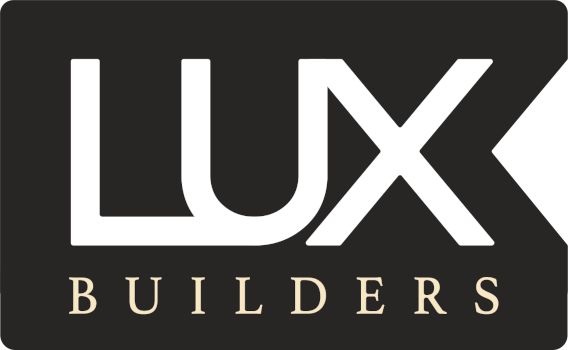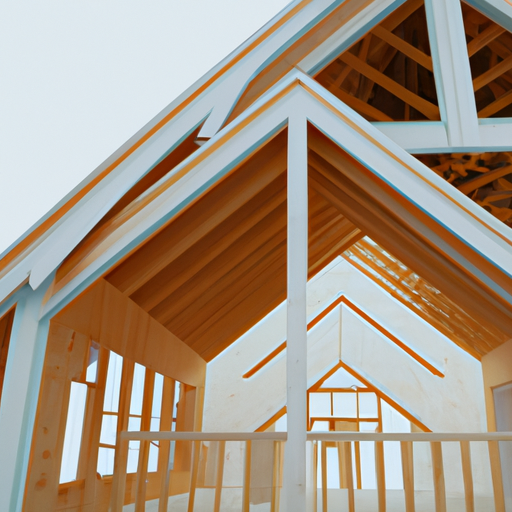Personalized Design: Crafting Your Dream Home
Building a custom home is an exciting and rewarding experience that allows homeowners to create a living space that is uniquely tailored to their needs, preferences, and lifestyle. While the process may seem daunting and expensive, the benefits of constructing a custom home far outweigh the challenges. One of the most significant advantages of building a custom home is the ability to design a personalized living space that reflects your individual tastes, preferences, and requirements. This article will explore the benefits of personalized design in crafting your dream home and why it’s worth the investment.
One of the primary reasons people choose to build a custom home is the opportunity to create a living space that is uniquely their own. With a custom home, you have complete control over every aspect of the design, from the layout and architectural style to the materials and finishes used throughout the space. This level of customization allows you to create a home that is a true reflection of your personality and lifestyle, ensuring that your living environment is both comfortable and functional.
In addition to the aesthetic benefits of personalized design, building a custom home also allows you to optimize the functionality of your living space. By working closely with an architect or designer, you can create a floor plan that is tailored to your specific needs and preferences. This may include designing a home with an open-concept layout for easy entertaining, incorporating a home office or gym, or creating a multi-generational living space to accommodate aging parents or adult children. The possibilities are virtually endless, and the result is a home that is perfectly suited to your unique lifestyle.
Another advantage of building a custom home is the ability to incorporate the latest technology and energy-efficient features into your design. This not only enhances the overall functionality and comfort of your living space but can also result in significant cost savings over time. For example, you may choose to install energy-efficient windows and doors, high-efficiency heating and cooling systems, or solar panels to reduce your reliance on traditional energy sources. Additionally, incorporating smart home technology can provide added convenience and security, allowing you to control various aspects of your home, such as lighting, temperature, and security systems, from a smartphone or tablet.
Building a custom home also allows you to select the materials and finishes used throughout your living space, ensuring that your home is both beautiful and durable. By working with a skilled builder, you can choose high-quality materials that are not only visually appealing but also stand the test of time. This level of control over the construction process ensures that your home is built to the highest standards, providing you with peace of mind and a lasting investment.
Finally, building a custom home allows you to choose the perfect location for your dream home. Whether you prefer a quiet, secluded lot surrounded by nature or a bustling urban neighborhood, you have the freedom to select a location that best suits your lifestyle and preferences. This level of control over your living environment is simply not possible when purchasing a pre-existing home, making custom home construction an attractive option for those who value location and privacy.
In conclusion, the benefits of building a custom home are numerous and far-reaching. From the ability to design a personalized living space that reflects your unique tastes and preferences to the opportunity to incorporate the latest technology and energy-efficient features, constructing a custom home is an investment that is well worth the time and effort. By working with a skilled architect, designer, and builder, you can create a living environment that is not only beautiful and functional but also a true reflection of your individuality and lifestyle. So, if you’re considering building a custom home, remember that the benefits of personalized design make it an investment that is truly worth it.
Long-term Savings: Energy Efficiency and Low Maintenance Costs

Building a custom home is a significant investment, but it is one that can pay off in the long run. One of the most compelling reasons to consider building a custom home is the potential for long-term savings. By designing a home that is energy-efficient and requires minimal maintenance, homeowners can save money on utility bills and upkeep costs over time. This article will explore the benefits of building a custom home in terms of energy efficiency and low maintenance costs, demonstrating why it is worth the investment.
Energy efficiency is a critical factor in the design of modern homes. With the increasing awareness of climate change and the need to reduce our carbon footprint, homeowners are seeking ways to make their homes more environmentally friendly. Building a custom home allows for the incorporation of energy-efficient features from the ground up, ensuring that the home is designed with sustainability in mind. This can lead to significant savings on energy bills over time, as well as a reduced environmental impact.
One of the primary ways that custom homes can be designed for energy efficiency is through the use of high-quality insulation. Proper insulation helps to maintain a consistent temperature within the home, reducing the need for heating and cooling systems to work overtime. This can lead to substantial savings on energy bills, as well as a more comfortable living environment. Additionally, custom homes can be designed with energy-efficient windows and doors, which can further reduce heat loss and improve overall energy efficiency.
Another way that custom homes can be designed for energy efficiency is through the use of renewable energy sources. Solar panels, for example, can be integrated into the design of a custom home, allowing homeowners to generate their own electricity and potentially even sell excess power back to the grid. This can lead to significant savings on energy bills, as well as a reduced reliance on fossil fuels.
In addition to energy efficiency, custom homes can also be designed with low maintenance costs in mind. By selecting high-quality materials and finishes, homeowners can reduce the need for frequent repairs and replacements. For example, choosing durable flooring materials, such as hardwood or tile, can help to minimize wear and tear over time. Similarly, selecting high-quality fixtures and appliances can help to ensure that they last for many years, reducing the need for costly replacements.
Custom homes can also be designed with low-maintenance landscaping in mind. By selecting native plants and incorporating features such as rain gardens and permeable paving, homeowners can create a beautiful outdoor space that requires minimal upkeep. This can save both time and money in the long run, as well as contribute to a more sustainable living environment.
In conclusion, building a custom home offers numerous benefits in terms of long-term savings. By designing a home that is energy-efficient and requires minimal maintenance, homeowners can save money on utility bills and upkeep costs over time. This makes the investment in a custom home well worth it, as it can lead to significant financial savings in the long run. Additionally, building a custom home allows for the incorporation of sustainable features and materials, contributing to a reduced environmental impact and a more eco-friendly lifestyle. Overall, the benefits of building a custom home make it a worthwhile investment for those seeking a comfortable, efficient, and sustainable living environment.
Unique Features: Incorporating Innovative Technologies and Materials
The decision to build a custom home is a significant one, and it comes with a myriad of benefits that make it a worthwhile investment. One of the most compelling advantages of constructing a custom home is the ability to incorporate unique features, innovative technologies, and cutting-edge materials into the design. This not only allows homeowners to create a living space that is tailored to their specific needs and preferences, but also ensures that their home is equipped with the latest advancements in sustainability, energy efficiency, and overall functionality.
One of the most exciting aspects of building a custom home is the opportunity to integrate state-of-the-art technologies that can enhance the overall living experience. For instance, smart home systems have become increasingly popular in recent years, as they allow homeowners to control various aspects of their home, such as lighting, temperature, and security, through a single, centralized interface. By incorporating these systems into the design of a custom home, homeowners can enjoy unparalleled convenience and control over their living environment.
In addition to smart home technologies, custom homes can also be designed with advanced energy-efficient features that can significantly reduce utility costs and minimize the home’s environmental impact. For example, solar panels can be seamlessly integrated into the design of a custom home, providing a clean and renewable source of energy that can power the entire household. Similarly, high-performance insulation materials and energy-efficient windows can be used to minimize heat loss and maintain a comfortable indoor temperature, reducing the need for energy-intensive heating and cooling systems.
Another benefit of building a custom home is the ability to incorporate innovative materials that can improve the durability, functionality, and aesthetic appeal of the living space. For example, modern construction materials such as engineered wood, fiber cement siding, and composite decking offer superior performance and longevity compared to traditional materials, while also requiring less maintenance and upkeep. Additionally, these materials can be selected to match the homeowner’s specific design preferences, ensuring that the finished home is both visually stunning and built to last.
Custom homes also provide the opportunity to incorporate unique architectural features that can enhance the overall aesthetic appeal and functionality of the living space. For instance, open floor plans, vaulted ceilings, and large windows can be used to create a sense of spaciousness and promote natural light, while custom cabinetry, built-in storage solutions, and bespoke furniture can be designed to maximize the use of available space and create a truly personalized living environment.
Furthermore, building a custom home allows homeowners to select the ideal location for their property, ensuring that it is situated in a neighborhood that meets their specific needs and preferences. This can be particularly beneficial for families with children, as it enables them to choose a location that is close to schools, parks, and other amenities that are important for their lifestyle.
In conclusion, the benefits of building a custom home are numerous and varied, making it a highly attractive option for those looking to create their dream living space. By incorporating unique features, innovative technologies, and cutting-edge materials into the design, homeowners can enjoy a home that is not only tailored to their specific needs and preferences but also equipped with the latest advancements in sustainability, energy efficiency, and overall functionality. Ultimately, investing in a custom home is a decision that can provide long-lasting value and satisfaction, making it well worth the time, effort, and financial commitment.
Q&A
Question 1: What are the main benefits of building a custom home?
Answer: The main benefits of building a custom home include personalized design, better quality control, energy efficiency, and the ability to choose the ideal location.
Question 2: How does building a custom home allow for personalized design?
Answer: Building a custom home allows for personalized design by giving homeowners the freedom to create a floor plan and choose materials, finishes, and features that reflect their unique tastes and lifestyle needs.
Question 3: Why is energy efficiency a benefit of building a custom home?
Answer: Energy efficiency is a benefit of building a custom home because it allows homeowners to incorporate the latest energy-saving technologies and materials, resulting in lower utility bills and a reduced environmental impact.
Conclusion
In conclusion, building a custom home is worth it due to the numerous benefits it offers, such as personalized design, efficient use of space, long-term cost savings, and increased home value. By constructing a custom home, homeowners can create a living space tailored to their unique needs, preferences, and lifestyle, ensuring a comfortable and functional environment for years to come.


